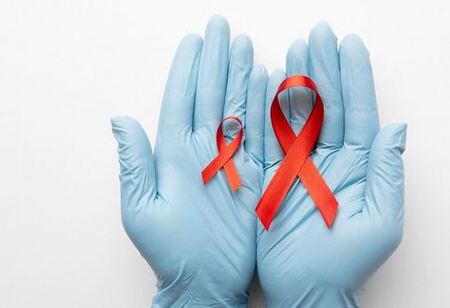
US Funding Cuts Could Reverse Decades of Gains in AIDS Fight: UN


The United Nations cautioned that the suspension of US foreign aid is a "ticking time bomb" that has the potential to undo decades of arduous progress in the battle against AIDS.
According to a recent report by the UNAIDS agency, mortality from AIDS-related illnesses had more than halved since 2010 to 630,000 that year, and some 31.6 million individuals were taking antiretroviral medications.
The world's largest humanitarian aid giver has historically been the United States, but President Donald Trump's sudden cutback of foreign aid in February left the international humanitarian community frantically trying to continue life-saving efforts.
A permanent end to PEPFAR, the huge US effort to combat HIV/AIDS, would result in almost six million new infections and an extra 4.2 million deaths from AIDS during the following four years, the organization said in April.
Also Read: Kirsty Coventry's Vision for the Future of IOC
The pandemic would return to levels not seen since the early 2000s as a result.
According to the research, more than 60 percent of the women-led HIV organizations assessed by UNAIDS had to halt operations or lose funding.
For instance, in the first few months of 2025, the number of Nigerians taking pre-exposure prophylaxis (PrEP) medications to prevent transmission decreased by more than 85 percent.
Also Read: A Lot of Weightlifting Awaits Lip-Bu Tan, But is Intel Ready for Him?
The "story of how the world has come together" to fight HIV/AIDS is "one of the most important stories of progress in global health," Byanyima told AFP.
"But that great story has been disrupted massively" by Trump's "unprecedented" and "cruel" move, she said.
"Developing countries themselves contribute very much towards the research on HIV and AIDS, and that research serves the whole world," Byaniyma said.
Important medical studies on prevention and treatment have also been discontinued, including several in South Africa, a country that leads the world in HIV research and has one of the highest rates in the world.
The governments of 25 of the 60 low- and middle-income nations that UNAIDS studied had discovered ways to use local resources to make up a portion of the financial deficit.
She told AFP, however, that the worldwide HIV response, which was based on grassroots engagement, was "resilient by its very nature".
"We have to move towards nationally-owned and financed responses," Byaniyma said, calling for debt relief and the reform of international financial institutions to "free up the fiscal space for developing countries to pay for their own response".

